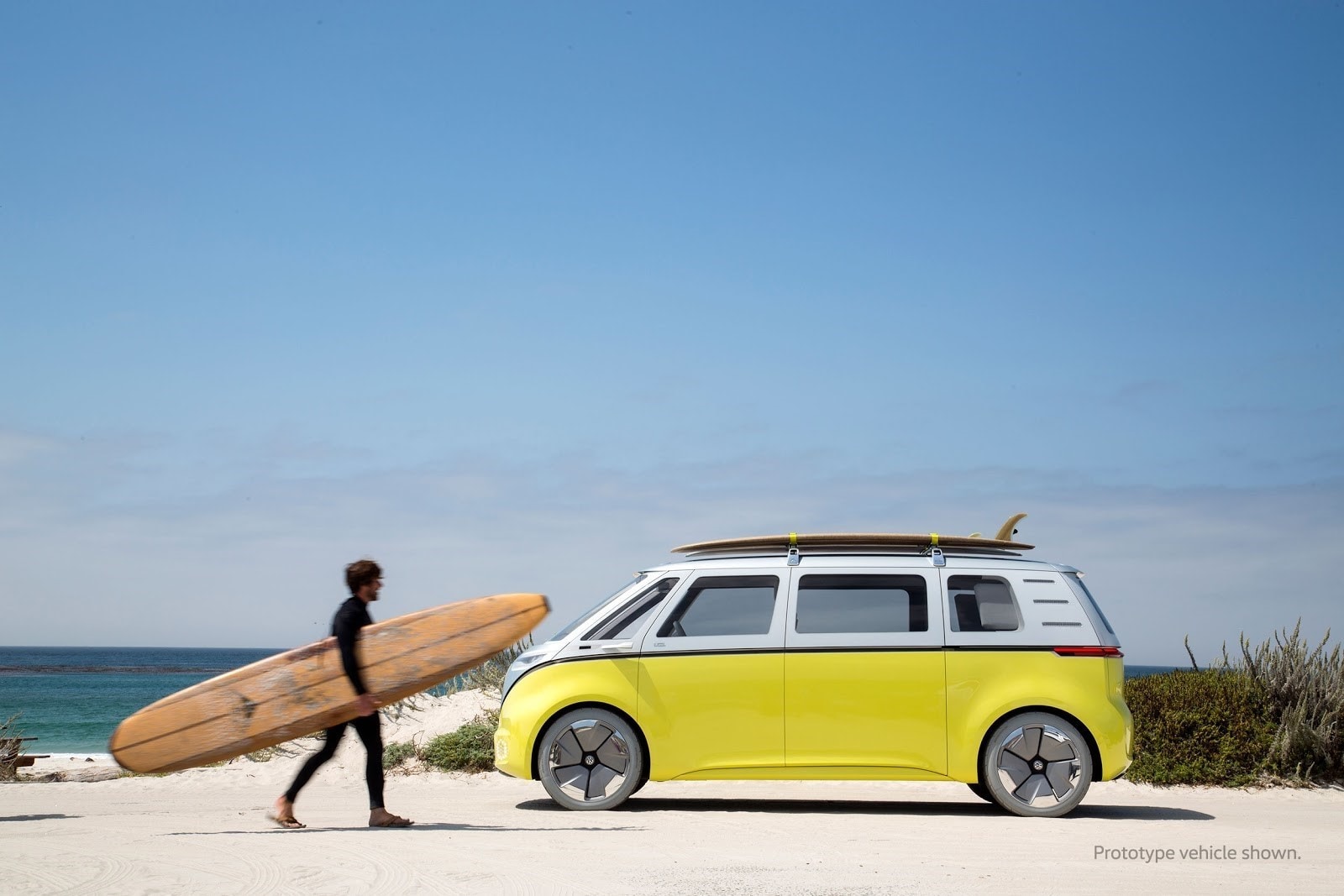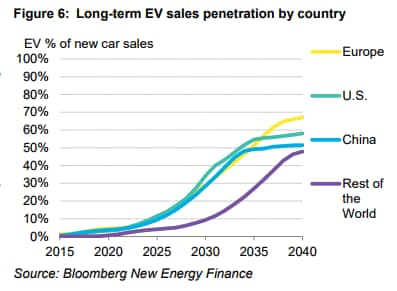The Volkswagen campervan is making an electric return

From pop-up laser scanners to fold-away steering, the new Kombi looks set to electrify markets in 2022 Image: REUTERS/Toby Melville
Back in 1947 it was just a sketch on the back of a napkin over lunch on Pebble beach, California. That sketch is now in a museum in Amsterdam, and the Volkswagen campervan is a well-known icon. If ever a vehicle could somehow represent freedom from the constraints of work and routine, this is it. It is the evocation, on four wheels, of the open road and surfer counter-culture, where "life’s a beach" and the waves just keep on rolling in.
Now VW is reinventing its icon, this time as an electric vehicle complete with autonomous driving capabilities, a fold-away steering wheel, pop-up laser scanners in the roof and a head-up display that integrates augmented reality.

Called the ID Buzz, it will go into production in 2020 and be on sale in the US, Europe and China in 2022. The first VW bus sold in the United States in 1950 had just 30 horsepower, whereas the ID Buzz will have 369 horsepower with electric motors on each axle, and a 111 kWh battery pack in the floor.
VW will be desperate to make a mark in the electric vehicle sector, after the reputation-battering scandal over its manipulation of emissions statistics from diesel vehicles. In 2015 the car maker admitted it had secretly installed software that could detect when its vehicles were being tested, and adjust the engine performance to reduce emissions for the duration of the test. The company’s chief executive at that time was Martin Winterkorn. He admitted VW had “broken the trust of our customers and the public” before announcing his resignation. VW will hope the ID Buzz will help to restore public faith in its vehicles and its green ambitions.
The reincarnation of the campervan is part of a wider drive from all the major car makers to develop electric or hybrid cars. GM has 20 electric models on the way, Toyota has said all its models will come with an electric option by 2025, while Ford has recently announced that it has formed a team to accelerate global development of electric vehicles with a mission to “think big”.
China, India, France and the United Kingdom have all announced plans to phase out vehicles powered by combustion engines and fossil fuels between 2030 and 2040, in the battle to reduce CO2 emissions and limit global warming.
A report from Bloomberg New Energy Finance estimates that electric vehicles will account for 54% of global new car sales by 2040.

But making and selling the electric vehicles is just one part of the equation: infrastructure and battery technology are also critical factors.
“The car manufacturers are saying, yes we will give you the cars you need, but governments need to incentivize the buying of electric cars and put up the charging infrastructure," Andrew Fulbrook, executive director of powertrain research at IHS Markit, told Forbes in an interview
“We need a lot more rapid chargers – over 100 kW, which will refill in less than 20 minutes. They don’t have to be as quick as conventional fuel but we are convinced that sub-20 minutes could be critical in attracting a large share of the market. We are a very long way from seeing sufficient fast-charging networks in Europe," Fulbrook said.
However, more companies have said they are investing in recharging points in recent months. E.ON has announced it is building a chain of 180 charging points from Norway to Italy, while a consortium called Ionity - with members such as BMW, Daimler, Ford and VW - has committed to building 400 fast-charging stations across Europe by 2020.

Meanwhile, China’s government has pledged to build a charging station for every vehicle on the road by 2020, planning a total of 4.8 million charging outlets and stations by 2020, a mammoth investment which has been estimated to cost $19 billion.
Battery technology is also making rapid progress towards affordability and a more acceptable range, and Bloomberg New Energy Finance predicts that the real take-up of sales of electric vehicles will come in the second half of the 2020s when the price of lithium-ion batteries falls enough to make electric cars much more competitively priced.
If the electric VW is to gain the status of its predecessor as a symbol of escape and freedom, solid charging infrastructure is going to come in handy, as will batteries that are able to offer a decent range.
Don't miss any update on this topic
Create a free account and access your personalized content collection with our latest publications and analyses.
License and Republishing
World Economic Forum articles may be republished in accordance with the Creative Commons Attribution-NonCommercial-NoDerivatives 4.0 International Public License, and in accordance with our Terms of Use.
The views expressed in this article are those of the author alone and not the World Economic Forum.
Stay up to date:
Mobility Solutions
Related topics:
Forum Stories newsletter
Bringing you weekly curated insights and analysis on the global issues that matter.







